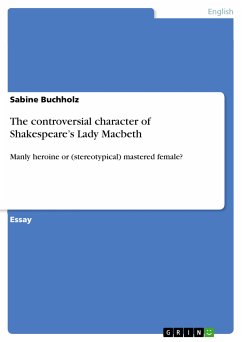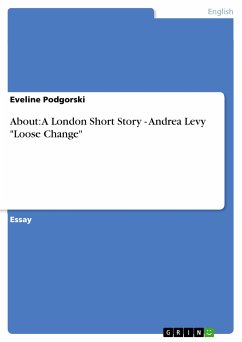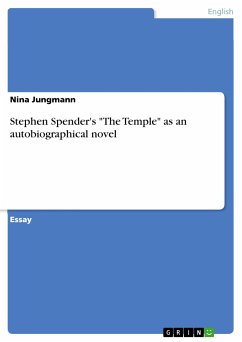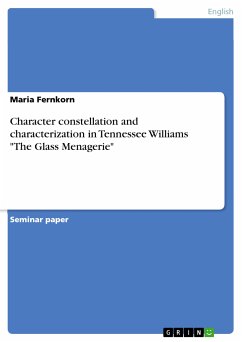
Tamburlaine's Zenocrate - only a pale and silent character or a lively individual? (eBook, PDF)
Sofort per Download lieferbar
15,99 €
inkl. MwSt.

PAYBACK Punkte
0 °P sammeln!
Seminar paper from the year 2006 in the subject English Language and Literature Studies - Literature, grade: 2,0, University of Regensburg (Institut für Anglistik ), course: HS “Christopher Marlowe” , language: English, abstract: Christopher Marlowe’s play Tamburlaine has often been analysed in respect of various factors and characters including power, the motive of overreaching, religion and many more. What has been treated with less interest is the role of females in this play. As C. L. Barber states, Marlowe “knew the available sources for the history of the great conqueror remarka...
Seminar paper from the year 2006 in the subject English Language and Literature Studies - Literature, grade: 2,0, University of Regensburg (Institut für Anglistik ), course: HS “Christopher Marlowe” , language: English, abstract: Christopher Marlowe’s play Tamburlaine has often been analysed in respect of various factors and characters including power, the motive of overreaching, religion and many more. What has been treated with less interest is the role of females in this play. As C. L. Barber states, Marlowe “knew the available sources for the history of the great conqueror remarkably well” but the character of Zenocrate is not mentioned in the sources of the historical Timur who lived from 1336 until 1405 and “was widely known in the West as the conqueror of Baghdad (1401) and Damascus (1403).” Therefore it is suggested that Marlowe must have had a special reason for he “created the role of Zenocrate in Tamburlaine out of whole cloth.” When Part I was first staged in 1587, the society at that time was greatly different in its conception of gender and gender-related attributes in comparison with modern thinking about men and women and their roles in society. It was “highly gendersegregated [and] [d]ifferent physical, emotional and intellectual qualities were ascribed to men and women, and to a significant extent they inhabited distinct social spaces.” From the traditional patriarchal perspective, therefore, qualities conventionally approved in women - passivity, sensitivity, tenderness, compassion, self-sacrifice, silence - are scorned in men as effeminate. Similarly, the attributes most admired in the male - activity, assertiveness, resourcefulness, resolution, eloquence - are deplored and sometimes even excoriated in the female as unnatural. Women were therefore commonly characterised as being associated with “the earth, sensuality, personal relationships, imagination, intuition, nature, and so on,” whereas men were perceived as the powerful, mighty, aggressive intelligent human beings who manage politics and war, from which women were mostly excluded. According to these values, “women [in literature often] function as apolitical, moral arbiters and men as monstrous Machiavells.”












